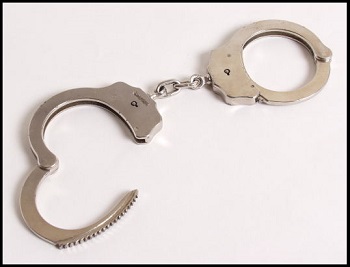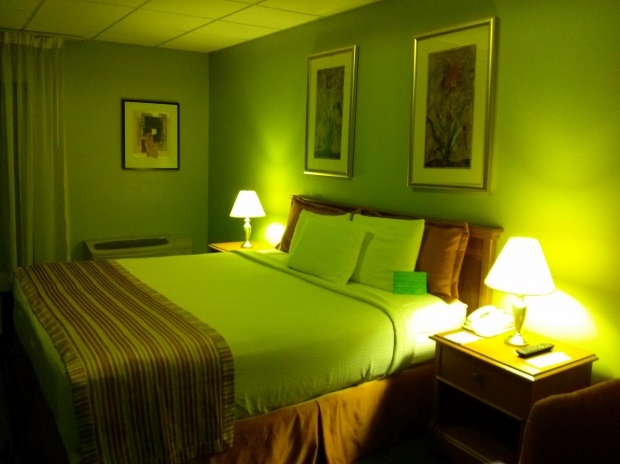A man has now been arrested by police in the United Kingdom in conjunction with the November 14 cyberattack.
Back on November 14, the server at Vtech was hacked in a massive cyberattack that placed the mobile security of an estimated 11.6 million customers at risk of having their personal information exposed.
Police in the U.K. who were investigating this data breach have now made an arrest in the case.
Vtech experienced its massive mobile security hack on November 14, when someone broke in and gained access to the email addresses, names, photos, birthdates and weakly encrypted passwords of that company’s customers. Essentially, any information that had been stored into the Learning Lodge app store database – which is used by many of the educational toys produced by Vtech – became accessible to the hacker through the cyberattack.
In November, Vtech had said that the mobile security breach impacted about 4.8 million of its customers.
 However, earlier in December the company updated that number, increasing it by more than double, to 11.6 million. Among them, 6.4 million of those affected customers are children. That said, only a few days ago, police in the United Kingdom placed a 21 year old male under arrest under suspicion of having violated the Computer Misuse Act by way of two separate offenses. The first was the unauthorized use of a computer. The second was in using that computer to access data in an unauthorized way.
However, earlier in December the company updated that number, increasing it by more than double, to 11.6 million. Among them, 6.4 million of those affected customers are children. That said, only a few days ago, police in the United Kingdom placed a 21 year old male under arrest under suspicion of having violated the Computer Misuse Act by way of two separate offenses. The first was the unauthorized use of a computer. The second was in using that computer to access data in an unauthorized way.
The police have also seized a number of electronic gadgets in order to conduct a forensic examination on the case. These devices were collected during the raid which occurred to the west of London in Bracknell. That part of the country is known for being an important part of the technology industry.
The arrest in this mobile security breach case was conducted by officers from the South East Regional Organised Crime Unit as a part of a larger effort in conjunction with other agencies that was focused on tracking down the hacker behind the VTech breach. The head of the Unit, Craig Jones, reported that the investigation remains early on and there is still a great deal more that can be learned about what happened.
These travel accommodations have also been using augmented reality to an increasing degree.
The hospitality industry has been among those that have been the most willing to embrace the use of smartphones by consumers and have been implementing geolocation technology through beacons, as well as augmented reality features, more than many other consumer facing industries.
In fact, hotels that haven’t implemented a mobile friendly strategy are already starting to fall behind.
While making it possible to book online over mobile devices has nearly become an industry standard, there are two other forms of mobile tech that are being adopted by hotels even before they are being seen in the majority of other places: geolocation technology and augmented reality. These are both emerging forms of tech that are barely seen in most other industries but hoteliers are starting to use them to help them to keep ahead of the competition – or at least stop them from falling behind.
Geolocation technology through beacons are becoming especially popular with some hotel brands.
 These use low energy Bluetooth connections to provide added hyper local, relevant services to guests with smartphones and tablets. The beacons can be placed on physical objects or they can be fenced into entire physical locations in order to push the right information to mobile devices at the most appropriate times.
These use low energy Bluetooth connections to provide added hyper local, relevant services to guests with smartphones and tablets. The beacons can be placed on physical objects or they can be fenced into entire physical locations in order to push the right information to mobile devices at the most appropriate times.
On the other hand, augmented reality can help to enhance services and features for hotel guests, making certain processes more appealing. The use of this type of tech is becoming increasingly important as Millennials become the largest consumer segment with disposable income. It is estimated that by the year 2020, they will be spending an annual $4.1 trillion.
Furthermore, among Millennials, about 52 percent are well above average when it comes to technology adoption. This means that when appealing to that particular demographic, it can be invaluable to reach them through the mobile devices that they use for many of their everyday tasks. This is the adult demographic most likely to look to smartphones and tablets in order to complete a broad spectrum of tasks, meaning that hotels can add draw by interacting with those consumers over channels such as those that are geolocation technology based.
 However, earlier in December the company updated that number, increasing it by more than double, to 11.6 million. Among them, 6.4 million of those affected customers are children. That said, only a few days ago, police in the United Kingdom placed a 21 year old male under arrest under suspicion of having violated the Computer Misuse Act by way of two separate offenses. The first was the unauthorized use of a computer. The second was in using that computer to access data in an unauthorized way.
However, earlier in December the company updated that number, increasing it by more than double, to 11.6 million. Among them, 6.4 million of those affected customers are children. That said, only a few days ago, police in the United Kingdom placed a 21 year old male under arrest under suspicion of having violated the Computer Misuse Act by way of two separate offenses. The first was the unauthorized use of a computer. The second was in using that computer to access data in an unauthorized way.
 These use low energy Bluetooth connections to provide added hyper local, relevant services to guests with smartphones and tablets. The beacons can be placed on physical objects or they can be fenced into entire physical locations in order to push the right information to mobile devices at the most appropriate times.
These use low energy Bluetooth connections to provide added hyper local, relevant services to guests with smartphones and tablets. The beacons can be placed on physical objects or they can be fenced into entire physical locations in order to push the right information to mobile devices at the most appropriate times.